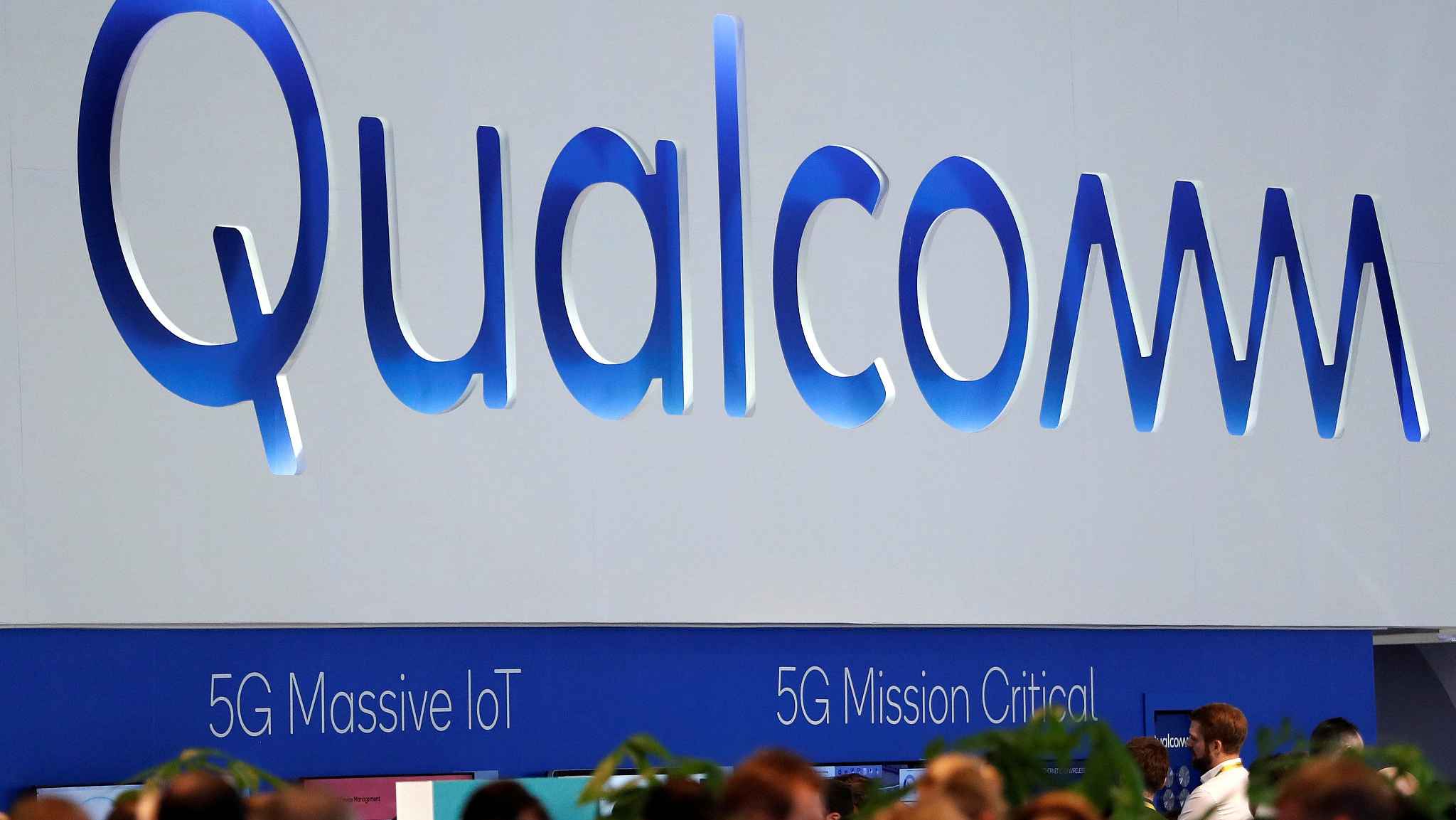
Tech & Sci
10:15, 11-Dec-2018
Chinese court bans some iPhones over Qualcomm dispute
Updated
09:25, 14-Dec-2018
CGTN

U.S. chipmaker Qualcomm said it's won an order in a Chinese court banning some Apple phones in China as part of a long-running dispute over patents.
Qualcomm said Monday that the Fuzhou Intermediate People's Court in China has granted preliminary injunctions ordering four Chinese subsidiaries of Apple to stop selling and importing iPhones.
It's not immediately clear what the full scope of the ruling is. While Qualcomm said the ban covers iPhones 6S through X, but the ruling did not apply to Apple's three newest iPhones: the XS, the XS Max and the XR.
But according to Apple, all iPhone models now remain available for customers in China.
The dispute is over two Qualcomm patents enabling consumers to format photos and manage phone apps using a touch screen. Apple called it a “desperate move” by Qualcomm and promised to fight it in the courts. Apple said it filed a request Monday for the court to reconsider its ruling.
Don Rosenberg, Qualcomm's general counsel, said in a statement Monday that if Apple doesn't heed the orders, it will seek enforcement of them through tribunals that are part of the Chinese court system.
Although its name isn't widely known outside the technology industry, San Diego-based Qualcomm is one of the world's leading makers of the processors that power many smartphones and other mobile devices. Qualcomm also owns patents on key pieces of mobile technology that Apple and other manufacturers use in their products.
Qualcomm's case against Apple is part of a broader legal strategy it has waged against the iPhone maker around the world, with cases also pending in the United States and Europe.
The two companies have also battled over how much Apple owes in licensing fees to Qualcomm.
Apple's China strategy
China has been an important market for Apple in recent years since China Mobile agreed to begin distributing the smartphones in 2014, and a number of Apple stores are open in China.
Apple's most recent quarterly report showed it brought in some 11 billion U.S. dollars – around 18 percent of its total revenues – from China.
Its chief executive Tim Cook has made regular visits to China, and has touted the company's inroads in the Chinese market as well as its manufacturing there.
Qualcomm, the leading supplier of chips for mobile devices, has been in a prolonged legal battle with Apple in recent years.
Apple has claimed that Qualcomm is abusing its market power over certain mobile chipsets in order to demand unfair royalties, joining a string of antitrust actions against the chipmaker.
Qualcomm has countersued Apple and earlier this year escalated its legal fight, claiming the iPhone maker stole trade secrets and shared them with mobile chip rival Intel.
According to Qualcomm's U.S. lawsuit, Apple's goal was to buy mobile chips from Intel instead of depending on Qualcomm.
Apple shares rose by less than one percent to 169.60 U.S. dollars, recovering from an early drop when it became clear phones were still on sale, and Qualcomm stock rose by 2.2 percent to 57.24 U.S. dollars, according to Reuters.
Source(s): AP
,AFP

SITEMAP
Copyright © 2018 CGTN. Beijing ICP prepared NO.16065310-3
Copyright © 2018 CGTN. Beijing ICP prepared NO.16065310-3